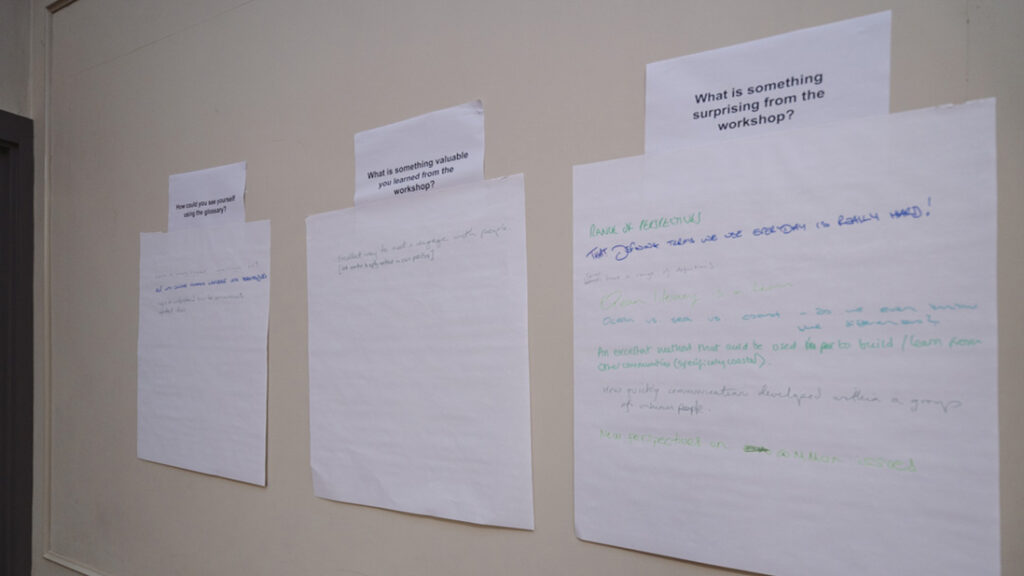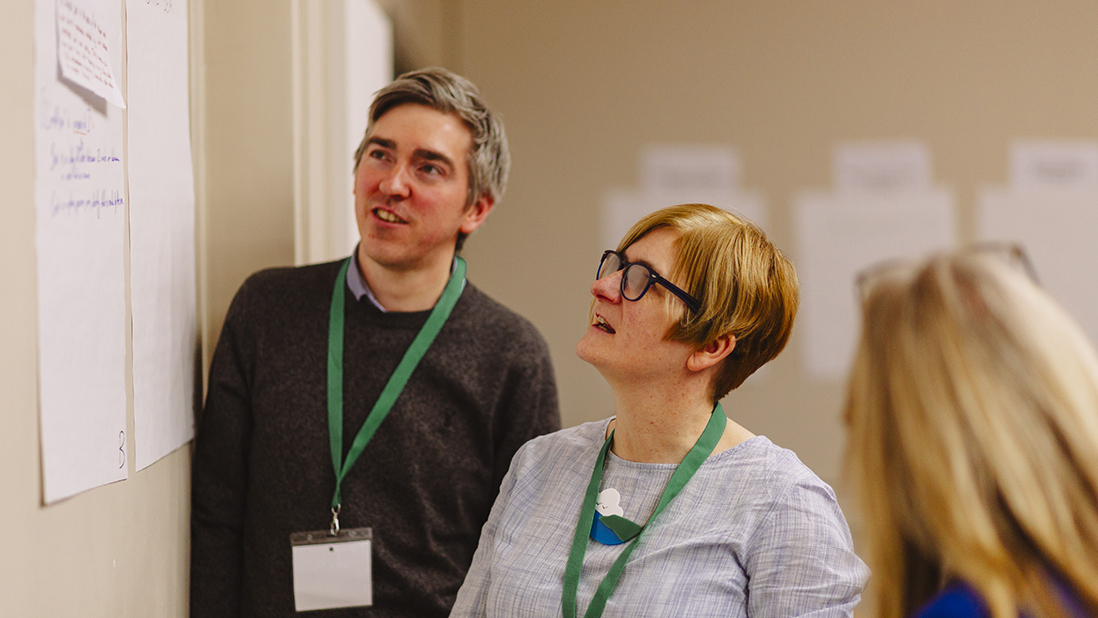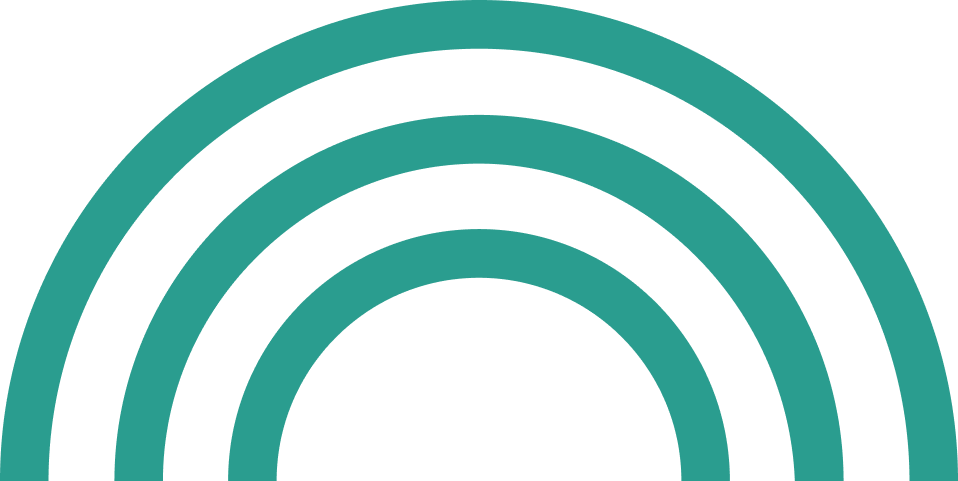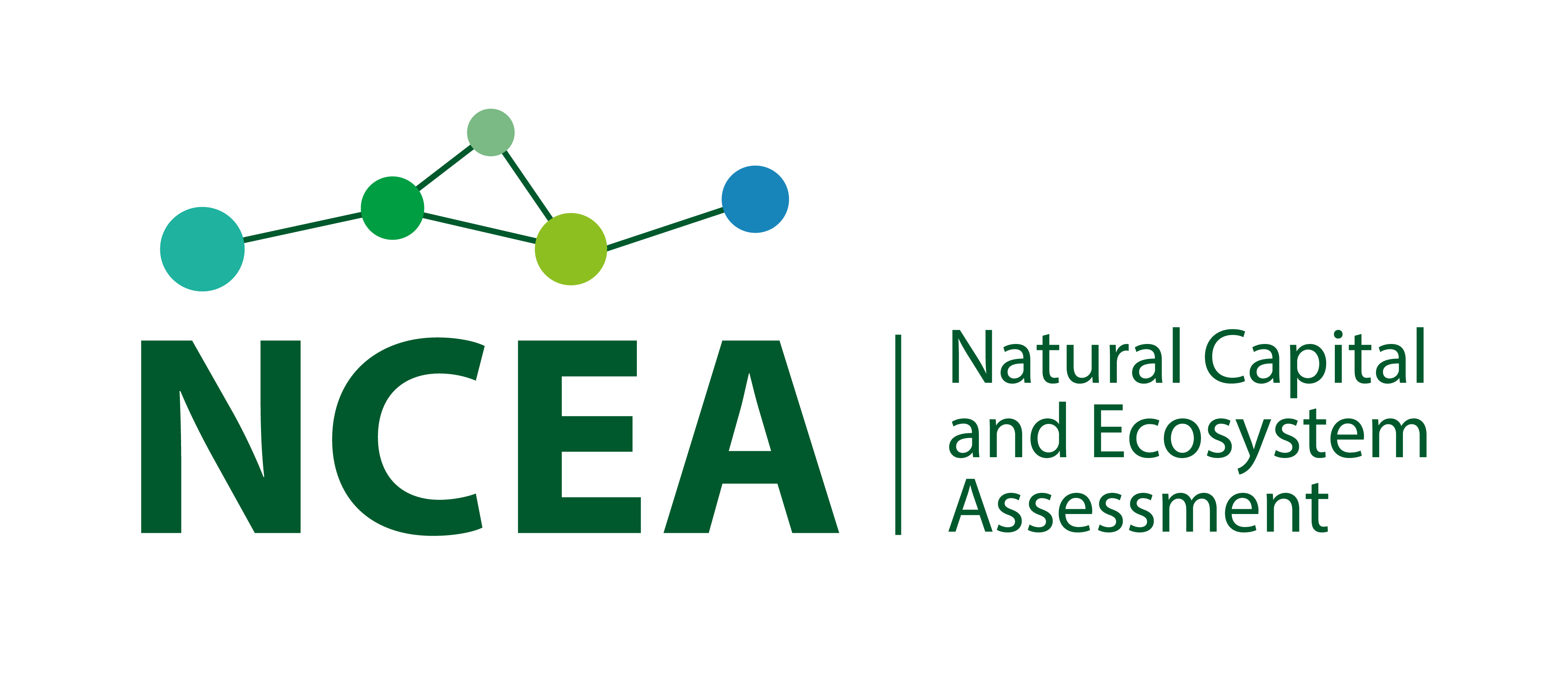At the Coast-R Network Launch Event, delegates were invited to participate in a ‘Living Glossary’ Workshop. In this blog from Prof Stephanie Jones and her workshop co-hosts, she discusses the process that led to some surprising outcomes.
The fluidity of words can be surprising. As a participant in the Coast-R Living Glossary workshop commented, “ocean vs sea vs coast – do we even know the difference?”. Or as another noted, “defining terms we use every day is really hard!!!”. Even more noteworthy was the curiosity and generosity that everyone brought into the room. By the end of the day, we had turned the quicksilver of language into a set of subtle tools for ensuring that – as another participant put it – we “don’t assume everyone starts [talking about resilient coastal communities and seas] from the same place”.
Many who joined us on the afternoon of 6 November were struck by the simple-yet-effective plan we followed. People were happily surprised by “how quickly communication developed between a group of unknown people”, and by how rapidly and effectively it enabled them to find “new perspectives on common issues”. In the summary of one of our participants, it proved an “excellent way to meet and engage with people”.
How, then, did the alchemy happen?
The idea for the glossary was prompted by both the initial Network Plus Coast-R meetings, as well as our colleagues working on the Resilient Anthropocene Coasts and Communities project. We all realised that we needed to acknowledge diverse understandings of key terms – but also to work-up some shared understandings. With this subtle balance in mind, we designed the Living Glossary workshop.
Everyone had a chance to move around the room in their groups, taking their coloured pens with them to wrangle with each set of words – to edit, challenge, finesse, compress and expand. We ended the workshop by asking our participants to choose their preferred definitions. This will allow us to see which parts of the glossary might be most meaningful to different sectors – industry, policy, creative, and academic – working for resilient coastal communities and seas. We look forward to synthesising the worked understandings (along with the hundreds of post-it notes!) produced by our dedicated workshop participants. Their inputs will be invaluable for helping Coast-R develop the Network with a shared lexicon that will further unfold as we draw in more reflections from place-based work over the coming years.
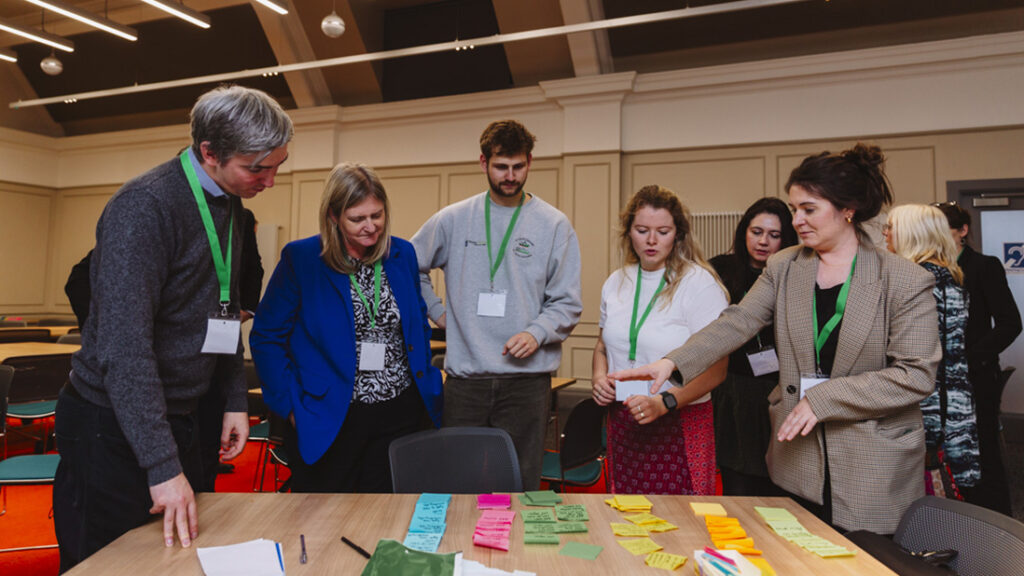
In the plenary session of the Coast-R launch, our panellists emphasised the need for more decisive and joined-up actions to address long standing and emerging challenges around the UK coast. We heard that we can’t let uncertainty stymie us; we can’t say we don’t know enough; we must not mistake talk for action. Yet – as another of our workshop participants underlined – “semantics matter”. Considering words is a way of learning to listen better. Considered words are important for effective decision making. And one of the immediate learning points from the workshop is that language is dynamic and situational, and takes-on critical meaning through place-based practices. But as a pronounced number of our workshops participants emphasised, we also need to “keep it simple”. So, as we consolidate the results of the workshops into a “Living Glossary”, we will bear this in mind.
It can be hard to use simple language for complex situations; but shared language is powerful, possible and necessary for inclusive action.
Look out for news from the COAST-R Network that our Living Glossary is indeed alive and available for your use in any context. Our participants told us they are already planning to deploy the glossary as “inspiration for community engagement”; for “gaining common language with stakeholders”; for helping to “communicate important ideas’; and for “seeking agreement with ministers”. We look forward to hearing about this work, and further enlivening the glossary.
Finally, what did not surprise us? The wisdom and experience, the eloquence and humour, and the desire to listen to one another that our emerging community of practice brought into the room. Thanks to everyone who joined us on the afternoon of the 6th November!
The Living Glossary workshop team:
- Dr Ed Brookes, University of Hull
- Dr Charlotte Hopkins, University of Hull
- Dr Gill Hughes, University of Hull
- Prof Stephanie Jones, Southampton University
- Prof Larissa Naylor, University of Glasgow
- Dr Katerina Velentza, University of Hull
